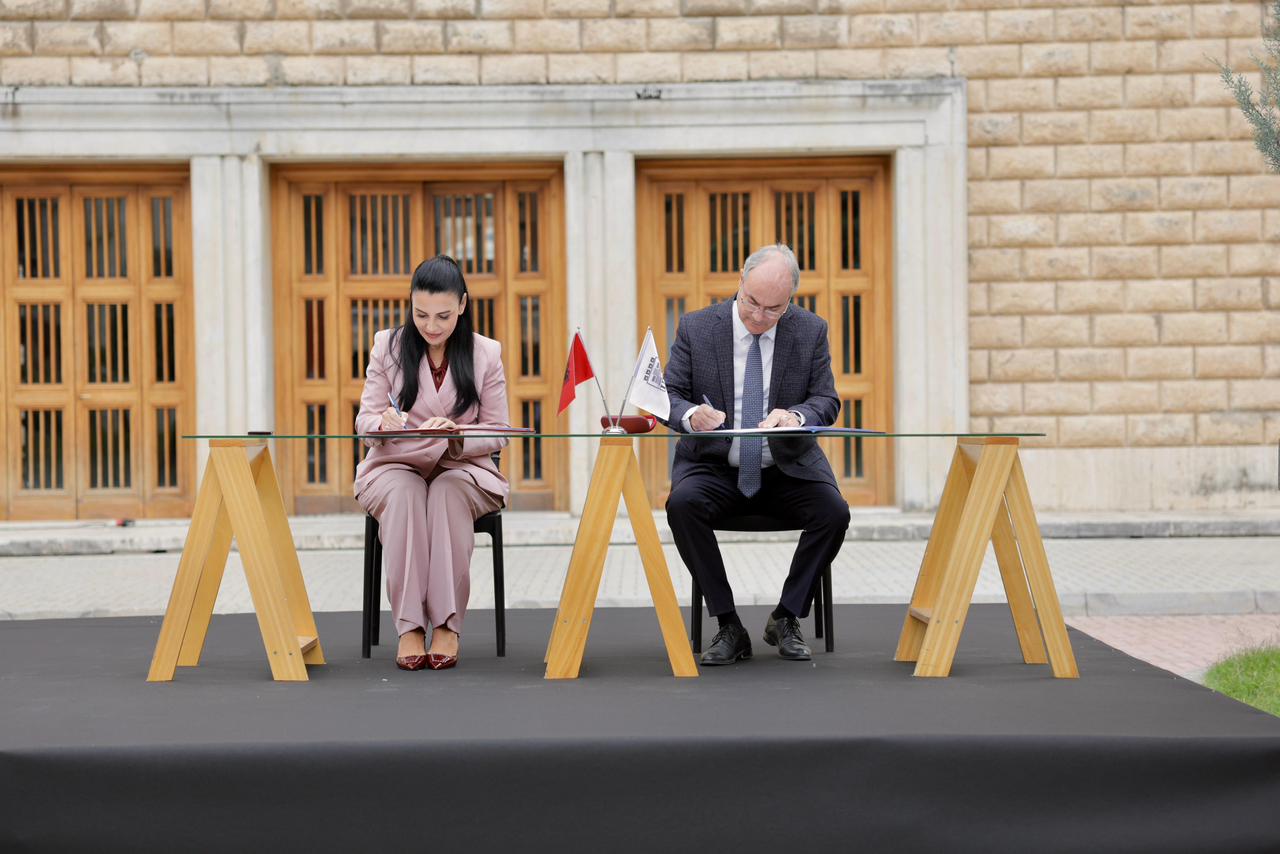Albanian Economy Grows 3.51%, Outperforming EU Average
Today, Delina Ibrahimaj, the Minister of Economy and Innovation, presented the latest overview of the country’s economic performance at the conference titled “Stability and Development through Economy and Innovation.”
“According to INSTAT data, the gross domestic product grew by 3.51% during the second quarter of this year, which is a significantly higher rate than the EU average of 1.5% and higher than the average of 2.9% in the Western Balkan countries,” stated Minister Ibrahimaj.
The Albanian economy is experiencing stable growth, primarily driven by domestic demand. In the second quarter, domestic demand increased by nearly 5%, with consumption contributing almost 70% of the growth. Household consumption increased by 3.83%, fueled by higher employment, wage growth, and increased food imports. Public administration consumption increased by 12.44%, positively impacting GDP. Investments grew by 4.33%, indicating a revival of economic investment. Meanwhile, exports of goods and services increased by 0.97%, while imports grew by 3.26%, reflecting broader economic activity.
Foreign direct investment (FDI) reached €759 million in the first half of 2025, an increase of €8 million compared to the same period in 2024. Almost half of these investments were reinvestments by existing foreign enterprises, which reflects investor confidence in the Albanian market and improvements in the business climate. The main investors are Italy and Turkey, followed by Austria and Kosovo. Of the total FDI, 33.3% is concentrated in real estate, 19.3% in the financial sector, and 13% in extractive industries. The remainder is divided among trade, manufacturing, and the energy and gas sector.
Despite slight declines in livestock and fisheries, production in the agricultural sector increased by 2.62% in the second quarter. The minister announced that €250 million has been allocated for agricultural loans at a 2% interest rate through the Guarantee Fund and the Bank of Albania. The Albanian Development Bank will also provide sustainable financing for SMEs and the agricultural sector using government and foreign funds.
Minister Ibrahimaj emphasized that macroeconomic stability, support for productive sectors, and promotion of investment will remain the main pillars of development. Additionally, she highlighted the importance of innovation and digitalization in establishing a technology-based economic model that emphasizes entrepreneurship and human capital.



